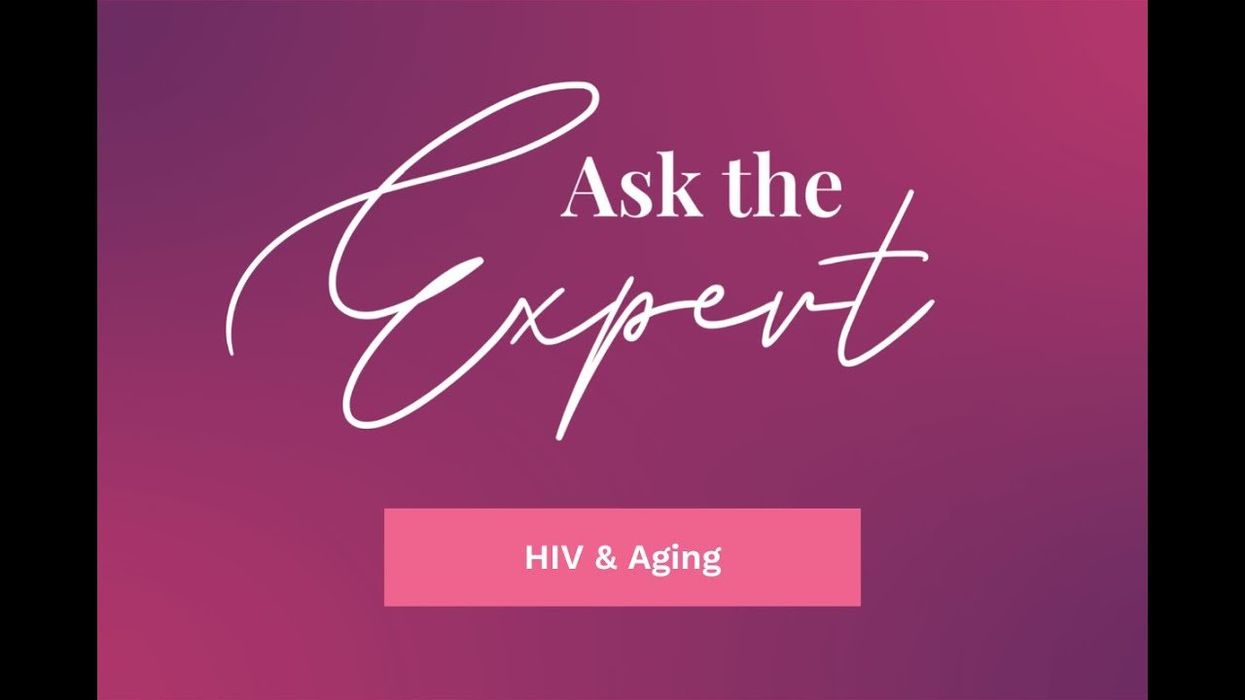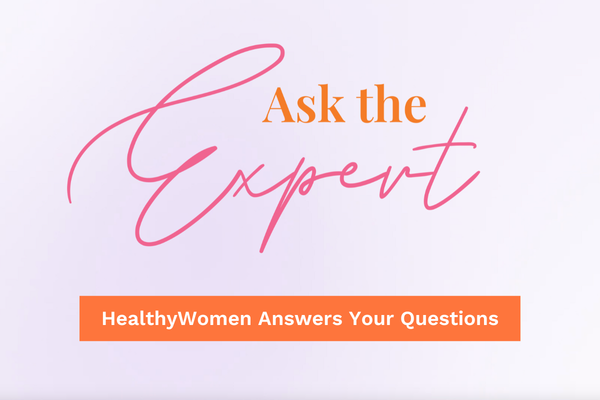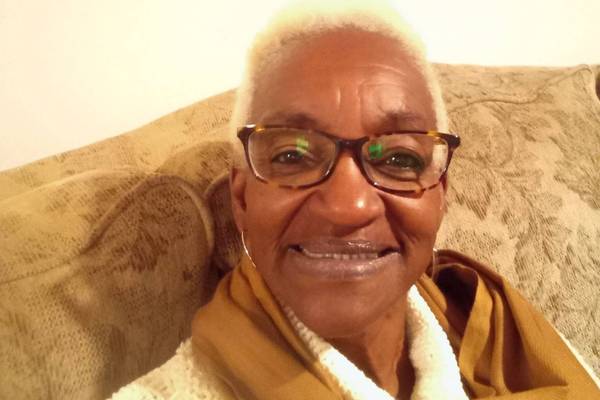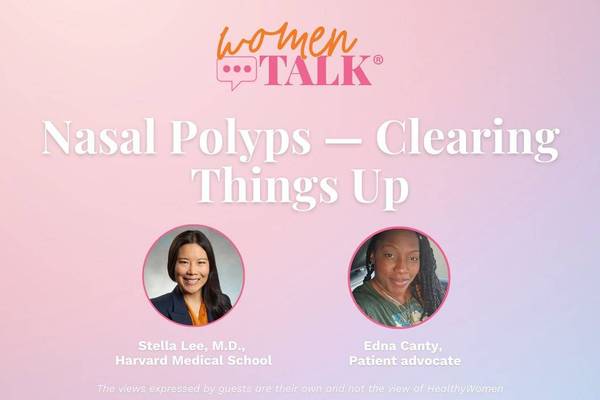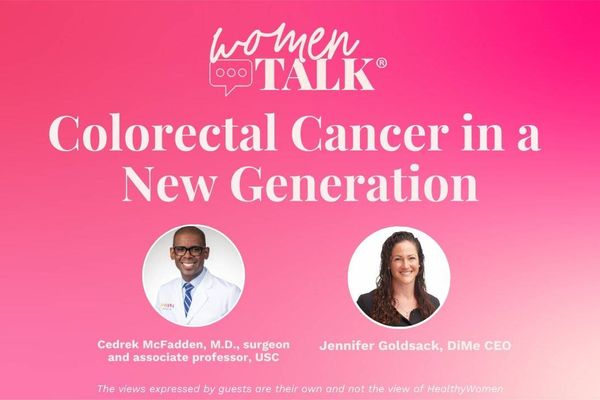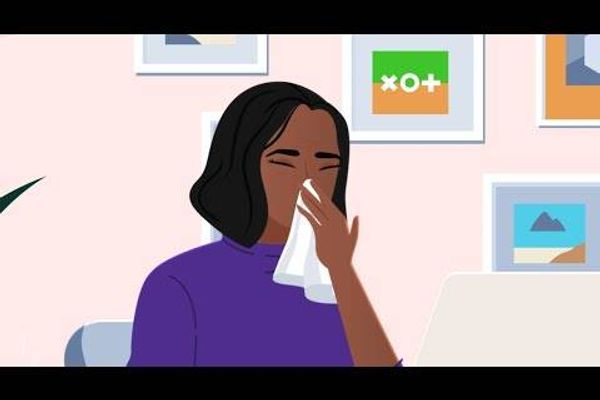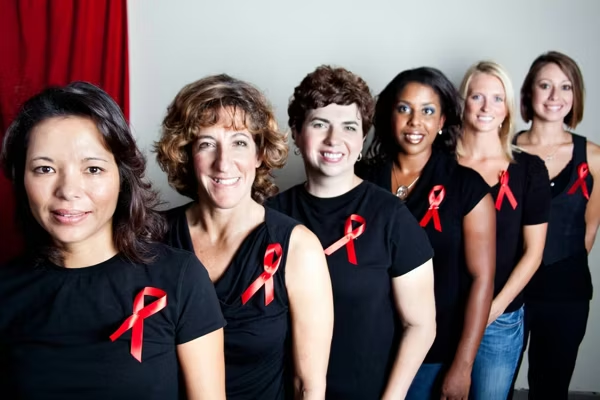This resource was created with support from BD, Merck and Janssen.
The Experts:
Jessica Zajesky is an RN Care Coordinator at a large, comprehensive HIV treatment center in upstate NY where she works with underserved populations in both an HIV and primary care setting. She graduated in 2004 with an AAS in nursing from Maria College and is experienced in both critical care and infectious disease. She volunteers through several local healthcare-based programs to promote health and wellness and was honored with a DAISY nursing award for her work with HIV patients in 2019. She is the mom of two great boys, currently resides in Albany, NY, and is an avid Mets fan in her spare time.
Ashley Smith has been living with HIV for 31 years. She is a long-term survivor who was diagnosed at age 21. Thanks to steadily increasing medical knowledge about HIV/AIDS and the development of ever-more effective antiretroviral therapies, she is still here to celebrate the emergence of gray hair and wrinkles. Her educational background includes a B.A. in English literature and women and gender studies, a M.Div. in theology, and three years of coursework in constitutional, legislative/administrative and civil rights law. Across a variety of job settings, she has consistently been involved in social justice advocacy. For the past two years, she has worked as a peer educator/advocate at a Ryan White/HRSA HIV outpatient clinic, helping people living with HIV develop strategies to successfully manage their healthcare and lives. When not at work, she can be found gardening, cycling, baking, traveling, taking photographs and absorbing stories in all formats. She is immensely grateful for the advances in HIV medical treatment; she is still waiting for a cure.
What is HIV?
[Jessica Zajesky] HIV is the human immunodeficiency virus. It's a virus that can cause AIDS and it's transmitted with direct contact through certain body fluids, such as blood, semen, vaginal secretions, and it can be transmitted through breast milk. HIV falls into the group of retroviruses, which are very challenging to overcome because they actually get into your body and they integrate with your own cells. They use your own cells and take them over and use them to replicate, so it can be a little bit difficult, particularly with HIV, because it binds to the T cell receptors. Your T cells — CD4 cells — are your helper cells — your white blood cells that are the first line of defense when you have a foreign pathogen or a bacteria or virus introduced into your body. The T cells are what throw up the red flags: "Hey, we need help! Something's coming. We have to get going," so when it takes over those cells, not only does it use them to replicate but then it reduces your immune response and over time, that impacts a person's ability to fight off even simple infections.
Who is at risk for HIV?
[Jessica Zajesky] Everyone is at risk for HIV — certainly the highest populations that we see new diagnosis in are black and Latino men that have sex with other men, but it's important to note that 50% of all new diagnoses were in age 50 and older and out of that, 20% of those new diagnoses were women.
How is HIV transmitted?
[Ashley Smith] Through bodily fluids: blood, semen, vaginal fluid, anal fluid and breast milk. And through how it isn't transmitted:
It's not transmitted through tears or sweat or hugging — skin-to-skin contact. You don't get it through saliva. You can't get it by drinking from somebody else's soda glass or from eating off of somebody else's plate. You can't get it from sitting on the same toilet seat as somebody else — all of these things that we used to think were potential concerns and that are still out there in the mindset about concerns. So it's educating on what this is and isn't, how you can and cannot get it, why it's easier to get if you are someone who's exposed to these bodily fluids through more porous parts of your body — membranes in your body that are more likely to absorb fluids. Like the Bounty — you know: "Quicker picker upper paper towel" absorbs things, and how if you're just like shaking hands with somebody, you don't need to worry about it.
Are there effective treatments available for managing HIV?
[Jessica Zajesky] Now we have multiple one-pill-a-day regimens, so it's (not like) before where patients were having to dose multiple times a day. They were having to adhere to difficult food restrictions or worry about drug-drug interactions because they were on so many different medications. Now it's one pill once a day. We also have more specialized testing that can help us use correct medications right from the start. The days of trial and error are not completely behind us, but we do much better and then coming on the horizon, we've just had a new medication: an anti-viral medication be approved that we've started rolling out here at the clinic that's an injectable, so patients come in after a loading dose. They come in every two months, they get an injection and that's their medication. There's no more pill bottles, there's no more daily reminder of their HIV. They're just living their lives.
Why is it important to take your medications?
[Ashley Smith] When people are on the medications that we have today and they're taking their medication every day, the amount of virus in the body goes so low that tests can't even detect it. We only know it's there because if people stop taking their meds, we start to see that the virus rebounds. When you don't have any detectable virus in your body, it is impossible to transmit this through sex to other people. It's a lot less likely to transmit this through blood. There's conflicting data about breast milk, so for women who are pregnant and want to breastfeed, you know, we really recommend they have a long talk with their doctor about that.
What do you recommend for people living with HIV?
[Ashley Smith] Take your medicines and check in with your doctor so that we can make sure everything's working the way that it should work, and that that's the most (important) thing, you know. Then live your best life. Be as healthy as you can. Make sure you're taking your meds every day consistently and make sure you're checking in with your doctor.
Are people living longer with HIV?
[Jessica Zajesky] Now we see patients aging out, right? And we've never seen that before. We've never seen long-term survivors getting to be old enough where they start to have aging-out issues, geriatric concerns, cardiac issues, high blood pressure, cholesterol —
normal things that come with aging, but then what does that look like in the setting of HIV? So that's our new challenge now: What does that look like and how do we best care for those patients? But what a great place to be, you know, from where we were 40 years ago, where the average life expectancy after diagnosis was only a couple years, and now we have patients who come in and say, "Yeah, I was diagnosed 40 years ago and I'm here and I'm healthy," and so that's really wonderful. It really speaks well to how far we've come.
Why are older adults more likely to be diagnosed with HIV later than younger adults?
[Jessica Zajesky] They're just not thought of as as high-risk. Many of them are in monogamous relationships, so they're not tested as often. Some of them — older Americans — came up through the stigma of HIV and so stigma can be a barrier to care. People are uncomfortable speaking to their provider about it. Providers are sometimes uncomfortable speaking to patients about it. You know, I'm in New York state. We have a mandate that says providers need to offer HIV testing at any visit and (if) I go to my own physicians and they don't offer and I say, "Well, you didn't offer me that" and they say, "Oh, did you want it, I didn't think that you would," everybody's at risk. There are certainly more high-risk groups, but no one is excluded. We have patients that come in who contracted HIV from their very first sexual encounter.
We have patients that came in who contracted it from their long-term partner who they thought was monogamous. So unfortunately, everybody is at risk and early detection — early treatment — is key, so we need to be comfortable pushing back, asking our providers, "Hey, could I be at risk for this? Do you think it's worth getting an HIV test? I would like to get an HIV test." We're also seeing, you know, higher divorce rates so you see more people in their 40s and 50s and 60s getting back out there, being sexually active, and because they're not as worried about pregnancy, they tend to be less likely to use condoms and that in and of itself, you know, can be a risk factor. Older women ... are, hormonally — once you go through menopause, you do experience some vaginal dryness. It can make those tissues easier to rupture, therefore allowing the virus to pass easier, so there are some risk factors for older people that I think sometimes we don't think about, but they definitely exist.
What kind of support is needed for someone who is newly diagnosed?
[Jessica Zajesky] I think education is probably the biggest thing that most of our patients need coming through the door. They need to know that they're safe, that they're going to be okay, and then they need the education as far as their disease: what to expect, how to properly manage it. You know, we do a good job on assessing people when they come through the door — "Do you know how to make an appointment, do you know when to call for a refill?" Health literacy plays a big part in what we do and we find that patients come in lacking a little bit of that, so to support them in that and helping them understand the disease process — how their medications work — helps them take better control of their health and ends up with more positive outcomes for them.
[Ashley Smith] Learn what this is and how you can know that you're the one in control of it, that you're the one who has a handle on it, that you have every resource in and of yourself to be able to live a long, healthy, full life and that this disease is — it's not even a disease. This virus in your body is not going to take anything away from you that you had the day before you got your diagnosis or any dream you had for what's going to happen 30 years from the time you get your diagnosis.
How does HIV bias and stigma negatively impact HIV care?
[Ashley Smith] So many providers are making assumptions about who is and is not at risk for HIV that people are going long, long, long periods of time without ever being tested. Some of the people who are lucky enough to find out early on enough to get right on top of this, almost as soon as they're exposed, are the people who already come to the table with the knowledge that "I want to get tested for something," but a whole bunch of us don't know. I can say a hundred percent as a white cisgendered woman, I would never have been perceived by a doctor to be somebody who'd be at risk for this and I probably would have been really, really sick and had to have worked really hard and possibly had long-term impacts to my health had I not happened to donate blood at a campus blood drive to find it back there in 1991. The fact that doctors make assumptions or I think sometimes they feel like they might be insulting a patient if they say, "Would you like to have an HIV test?" They don't want to say, "I'm thinking something about who you are or might be by offering this to you" and so that stigma from the very beginning prevents diagnoses and immediate treatment, which is the absolute best thing for this.
What would you say to a caregiver who is taking care of someone with HIV?
[Ashley Smith] The person that you love with HIV, the person you're caring for with HIV, is the same person they've always been. This has not changed them. They're not a different person. They are going to have every single fear and dream and hope and need and annoying trait and wonderful trait that they've always had. This is a virus. It is not a personality change or a total do-over of the person's life.
What would you tell a loved one that has just been diagnosed with HIV?
[Jessica Zajesky] I think the most important thing to tell them is, "You're going to be okay. This disease is manageable and you are worthy of managing it. You just need to stay on top of it." And then tell them that I love them and probably hug them really tight to just let them know, you know, you're safe and you're not infected or diseased. You are — you are worthy of a cure and we're working for that, so I think I would tell them that they're going to be okay.
[Ashley Smith] "You're going to be okay. You've got this. You have everything in you to be able to take care of it and I'm here for you and I will always be here for you."
What is the best advice you can give to someone newly diagnosed with HIV?
[Jessica Zajesky] "Absolutely take your medications and keep taking your medications. HIV can be a very smart and cunning disease. It can mutate. It gets smart. It can evade certain medications after time, so the best way to combat that is strict adherence to your antiviral regimen, which also has the added benefit of keeping you virally suppressed and limiting the damage that the virus does to your body."
[Ashley Smith] "You are not the virus. This virus does not define you. You control this virus. You are in control of it, it's not in control of you, so don't think of yourself as a walking virus. You are a person who is living with HIV. And take your medicines. Every day. All the time.
How do you talk to your healthcare provider if you think you might be at risk for HIV?
[Jessica Zajesky] Trust your own instincts. If you think that you're at risk or if you think that something is wrong — say that. If you feel that your provider is not taking your concerns seriously, maybe you need to think about switching providers. We need to normalize HIV testing. It needs to become part of everyone's physical every year because, as I mentioned, there's truly no one who's not at risk in some way, so I think if we can normalize that, make women comfortable talking to their providers about that, it will go a long way in diagnosis and treatment for those women.
[Ashley Smith] Every year, when you go in to your doctor, ask to be tested. Ask to talk to your doctor about what risk factors are if you don't know. If you have an encounter where you think you might have been at risk, if you have unprotected sex with a new partner, if you start to feel like your glands are swelling or all the other symptoms that you can talk to your provider about and learn, and you don't know what might be going on with the partner or even if you think you do know what might be going on with your partner, ask your doctor.
Ask if you could (be at risk). Rapid tests take 15 minutes. You can get an answer and that's your beginning point. They're very accessible and it's so much better to know this right on, as hard as it may be or scary, to know it right away so you can get on treatment right away if you're living with this. And if you're not, you have a relief of it.
What is your experience with bias and stigma related to HIV care?
[Jessica Zajesky] I've seen it in many facets. Personally I've seen it growing up, with my mother being ill. You know, we had housekeepers that hit or quit. We had family that kind of turned their backs. Someone in our local PTA had gotten wind of my mother's diagnosis and the parents actually held a PTA meeting to see if we were safe to attend school with their children, so it was really ugly back then, but I still see some of it today. It's family members who don't understand what HIV is, so their family member comes to them with a new diagnosis and they're shunned. It's providers. It's patients who can't find a dentist because, particularly with dentists, there seems to be a pervasive kind of misinformation about what is — how HIV is transmitted and how at risk they are and that seems to be a big thing for our patients. It's just finding a dentist. They can't find one that will take them because they are stuck in that 1985 thinking of how HIV works.
[Ashley Smith] There has been a lot over the 30-plus years that I've been living with this. One of the reasons that I get my own care at an HIV Ryan White Clinic is because I know that when I go to the doctor, people already know why I'm coming there. They know what my story is and I don't feel like I have to worry about people recoiling or rejecting or being afraid to treat me.
- How HIV Affects Menopause and Menopause Affects HIV ›
- HIV and Older Women ›
- I Believe I’m Aging Faster Because I Have HIV ›
- Growing Older with HIV ›
- HIV/AIDS Support Group Finder ›
- Your Guide to HIV & Aging ›
- Aging with HIV Requires Whole Person Care - HealthyWomen ›
- Clinically Speaking: Questions to Ask Your Healthcare Provider About Your HIV Treatment - HealthyWomen ›
- Fight Against HIV Stigma — Your Words Can Make a Difference - HealthyWomen ›
- Questions to Ask Your Healthcare Provider About HIV Treatment - HealthyWomen ›
- Lucha contra el estigma del VIH: Tus palabras pueden marcar la diferencia - HealthyWomen ›

